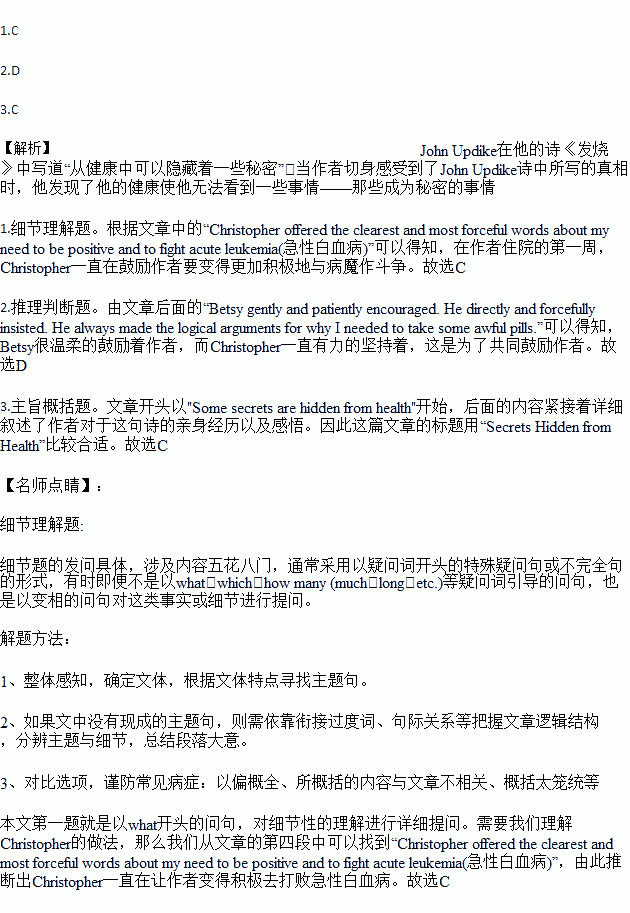题目内容
"Some secrets are hidden from health," wrote John Updike in his poem "Fever".
I have experienced the truth of Updike's observation. My excellent health kept me from seeing some things—things that became secrets of sort.
One relates to my son Chris. When I lost my health in March, I discovered something I had missed about him.
Christopher has been a scholar and athlete through high school. He has behaved responsibly, engaged in community service. He has had an impressive peer group of serious students.
While I saw these things, I had missed before what I experienced while in hospital. Early on, Christopher offered the clearest and most forceful words about my need to be positive and to fight acute leukemia(急性白血病). He never left the room after a visit without making me promise that I would be mentally tough and positive.
During the first week, he showed his own mental toughness, researching leukemia and learning what the chances were. He even stopped my doctor outside the room, introduced himself and asked directly what he thought of my chances. He processed the answer without overreaction.
Christopher did admonish(劝告) me against my choice of words the first week at home. I had moved back into my room from weighing myself, discovering a thin figure I did not know. I announced to him and my wife, “dead man walking”. I thought it was a way to lighten the obvious. He saw it as negativity and was strongly against such thinking and talking.
When I resisted taking medicine sometimes, Christopher formed a “good-cop-bad-cop” team with his mother. Betsy gently and patiently encouraged. He directly and forcefully insisted. He always made the logical arguments for why I needed to take some awful pills.
My health had hidden something from me; my ill-health helped me to see it.
1.What did Christopher do when the author was in hospital?
A. He told the author not to say anything wrong.
B. He offered some suggestions to the doctor.
C. He always encouraged the author to be confident.
D. He tried to get help from community service.
2.What does “good-cop-bad-cop” in the text refer to?
A. A trick to force the author to obey.
B. A measure to keep the author happy.
C. A friendly way to make the author see what was good for him.
D. A joint effort to persuade the author both kindly and forcefully.
3.What may be the best title for the text?
A. Lessons from Ill-health B. Unexpected Love
C. Secrets Hidden from Health D. Discovery Made in Hospital



 re of others than of yourself.3.
re of others than of yourself.3.